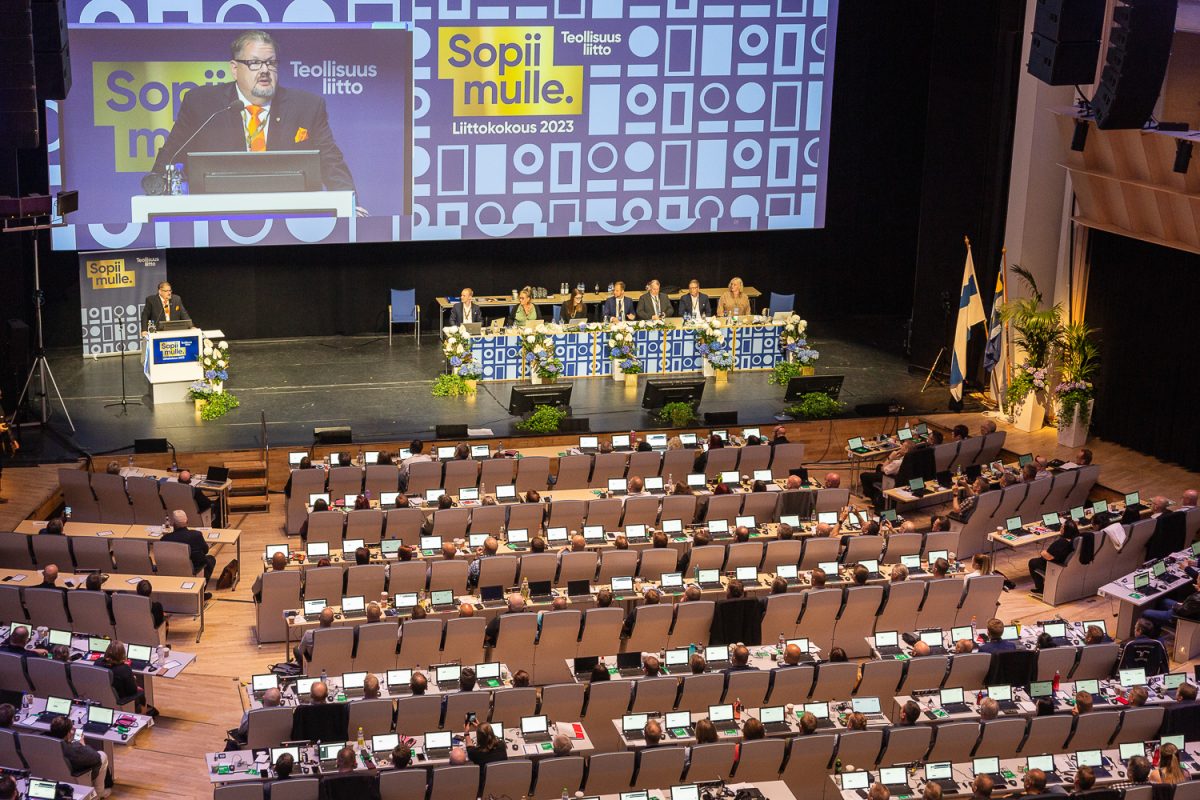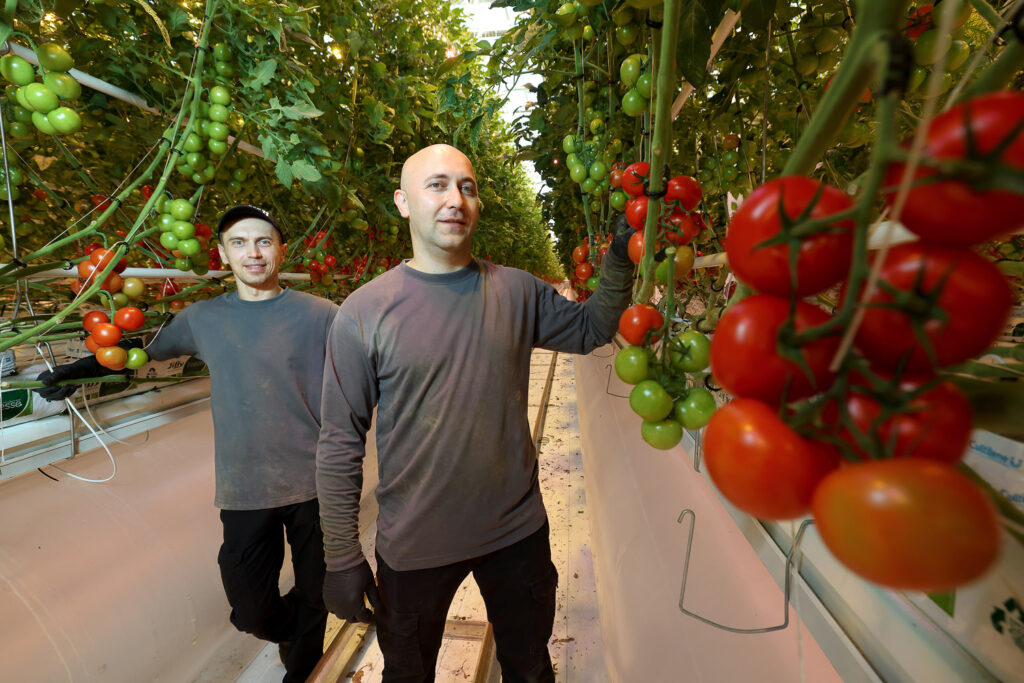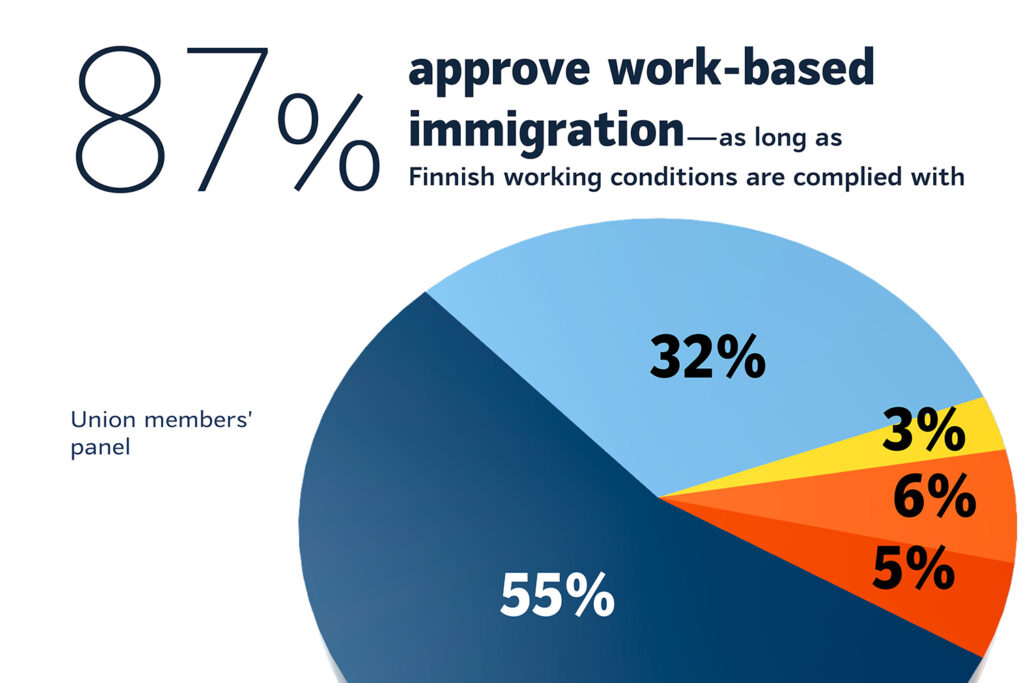Congress delegates: Union must be strong and transparent
A total of 442 delegates joined the Industrial Union Congress 22–24 May 2023 in Tampere Hall. They adopted the Union strategy, amended statutes and elected the new Union leadership for the next few years.
Riku Aalto, the Union President, and Turja Lehtonen, the Vice President, were re-elected unanimously. The new Board has 22 members, most of them new. Only five people continue from the previous Board.
One of the major issues on the table concerned strategy work. The new strategy adopted for the years 2023–2028 is based on union values: work based on members’ interests, solidarity, equality and defending the ones in weaker situations.
Local branches of the union sent, in advance, an amazing 935 proposals concerning the strategy. All these were discussed in the Congress committees and finally decided on in the plenary.
Discussion was important in the Congress; the delegates were not sitting idly by. On the first day alone, they delivered some 130 speeches.
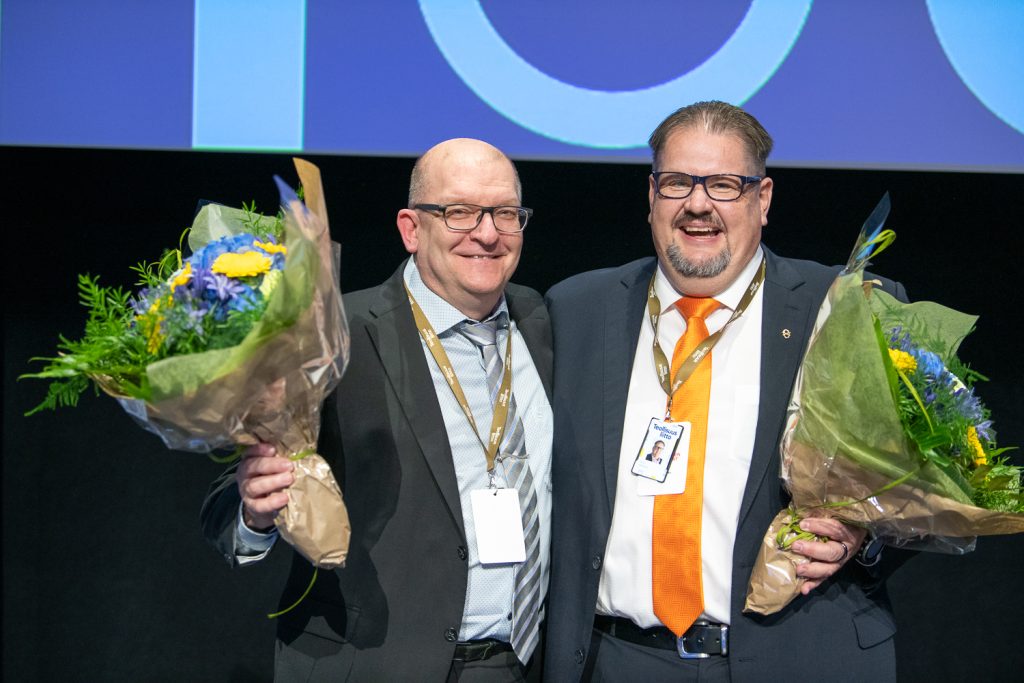
ACT AGAINST DUMPING
The topics discussed were many and varied. A considerable number of speakers addressed the importance of a strong and transparent Union.
Anna Andersson from the precious metals industry sector said that in the sectors with low pay, the differences in pay grades are small and that companies hardly even pay higher salaries.
– It is really strange that the shortage of labour is not reflected in pay, she said.
Many speakers stressed that the Union must be ready to act as Finland seems about to get a new right-wing Government which might seek to undermine the workers’ position.
– In this new Congress period we must be awake at all times, said Tommi Sauvolainen from the technology industry.
Our services are unique and indispensable, but we must explain it to the workers.
Jouni Jussinniemi from the mining sector said that many companies using foreign labour are dumping the terms of employment. To put a stop to this is the interest of all honest parties.
– This is a key advocacy issue for the next Congress period, he said.
Ilkka Vuonola from the rural industries and fur production said that the Union must be more active among immigrants. Offering services in several languages is a must in this work.
– Our services are unique and indispensable, but we must explain it to the workers, he said.
Burning the sawmill
Industry workers have been taking the hardest hits when employers have been tightening their labour market policy line, the Union President Riku Aalto said. He was summing up the past Congress period.
Employers opted out of national collective agreements in the mechanical wood industry this being one of the biggest changes. But the employers’ plan to weaken the union failed to bear fruit, Riku Aalto added.
– 97 per cent of our members in the branch are still covered by the collective agreement. Due to our organising campaign we got more than one thousand new members and the organising density in the branch rose by 12 per cent.
Getting a collective agreement in every single company in the branch did not succeed.
– Anecdotal evidence has one sawmill owner saying in negotiations that he would rather burn down his sawmill than make an agreement with the Industrial Union, Aalto said.
Álvaro Corredor Ochoa in an interview.
Services in English needed
One of the Congress delegates was Álvaro Corredor Ochoa from Tammisaari. He is working in the direct mail delivery sector.
The Congress was an experience, he said in a video interview on the union YouTube channel. He has never participated in such a major congress taking to the floor, too.
According to Corredor Ochoa, in his field of work there are a lot of immigrants.
– A priority for the English-speaking members is to have more services in English from the union.
In his work, Corredor Ochoa has had difficult times as a foreigner, even facing harassment. But in time things will take a turn for the better, he believes. Especially he encourages young foreign workers to join the union.
The most important thing for us is to leave nobody behind.
Union membership has opened a new world for me, he said.
– I was just doing night delivery and I ended up being a shop steward, as there was none before me. It opened up new possibilities for me.
Among the many international guests was Jochen Schroth, the Head of International Affairs at the German IG Metall union. He had a clear view of the trade union movement and green transition.
– The most important thing for us is to leave nobody behind. We have to talk about training and qualification, he said and strongly emphasised that we look to the future, not the past.
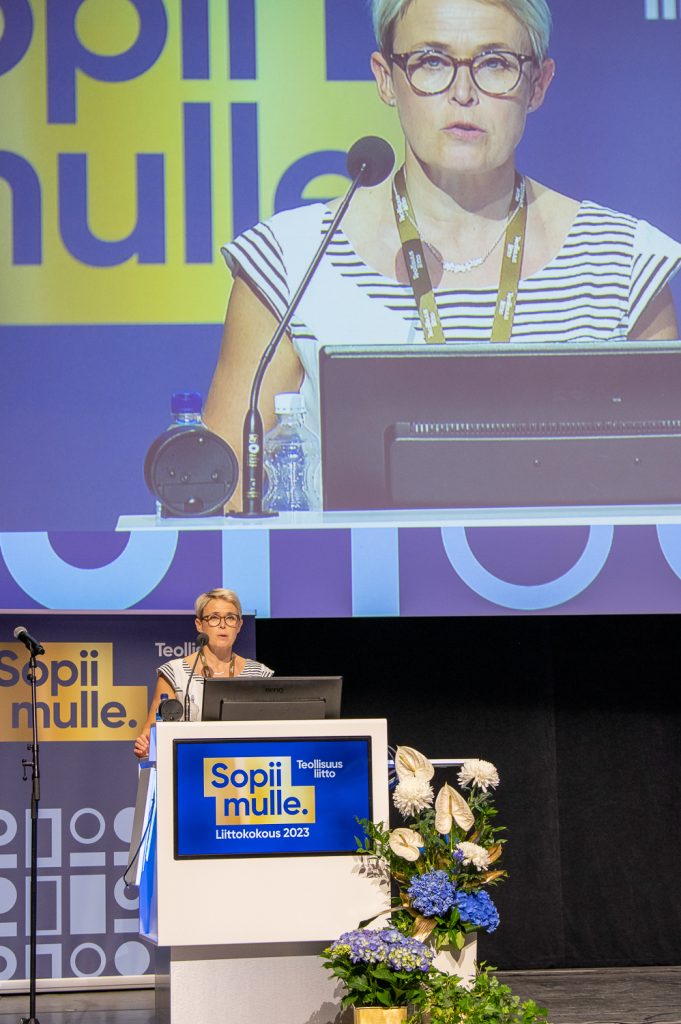
Strong economy
It is extremely important that a trade union has sound financial resources. When industrial action needs to be taken a poor union that cannot support members economically is a toothless union.
The economy of the Industrial Union is solid, Director of Economy Ulla Hopponen affirmed to the Congress.
By the end of 2022 the bottom line of the union balance sheet value was 677 million euro. The Industrial Union owned a big slice of the rental housing company Kojamo when it was listed on the stock exchange in 2018. This means the balance sheet is strong just now.
To conduct its own business during the congress period 2018–2023, the union spent a total of 236 million euro. During the same period the amount of collected membership fees came to 168 million euro. This was not enough to cover the costs of running the union. The shortfall – 68 million – was covered by the revenue from the investments.

